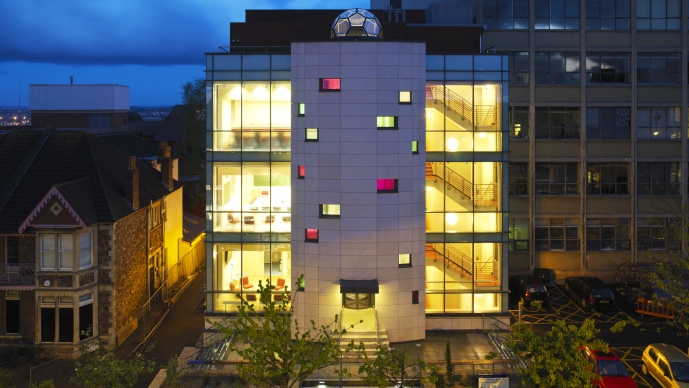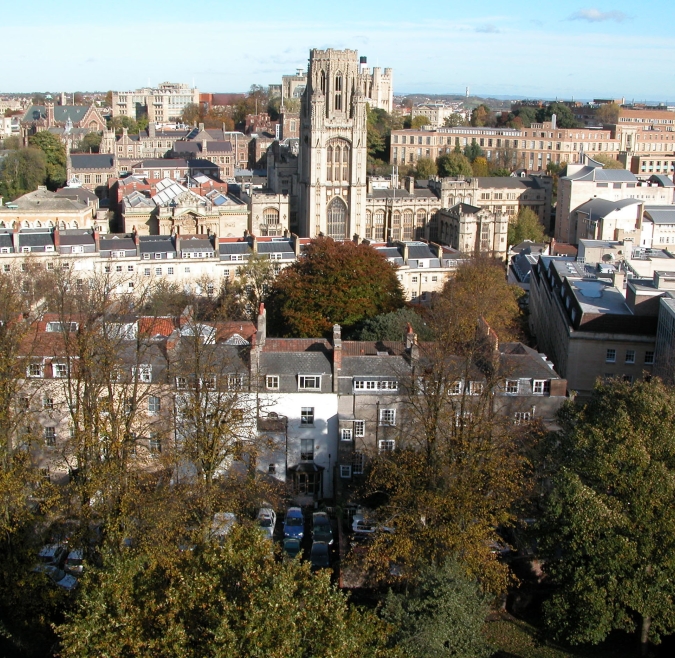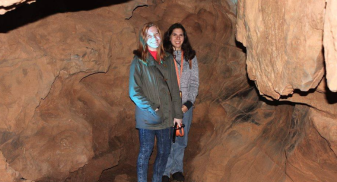University of Bristol (England)
The Program
Located right in the city, University of Bristol allows for a fluid continuity between campus and real city life.
Established in 1876, Bristol was Britain’s first institution of higher education to admit women on an equal basis. Today, the university boasts more than 30,000 students and offers 350 clubs and societies, as well as a modern sports and recreation center. The University of Bristol has been consistently ranked in the top 10 in the UK, competing with the likes of Oxford and Cambridge. The University is in the heart of the historic and buzzing cit. The University is in the heart of the historic and buzzing city of Bristol, with its shops, restaurants, bars, cinemas, theatres, parks, museums, galleries and harbourside.

Program Locations

England, United Kingdom
Bristol
Bristol scores highly when it comes to the arts—look out for works by graffiti artist Banksy—while the local music scene gave rise to Portishead, Massive Attack, Tricky, and Tears for Fears. The harbor district is a major hub by day or night, with museums, galleries, cafés, bars, and nightclubs. And day-trips from Bristol might take you to the nearby spa town of Bath, to the caves of the Cheddar Gorge, the hills of South Wales, or even by train to London.
Academics
Courses range from Arts (Anthropology, Archaeology, English, Film & TV, Innovation, Modern Languages, Music, Philosophy, Theater), Sciences (Chemistry, Earth, Geographical, Mathematics, Physics), Engineering (yearlong- Aerospace, Civil, Computer Science, Electrical & Electronic, Engineering Mathematics, and Mechanical), Life Sciences (Anatomy, Biochemistry, Biological Sciences, Cellular & Molecular Medicine, Neuroscience, Pharmacology, Physiology, Psychology), Humanities (Classics & Ancient History, English Literature, History, Art History, Religion & Theology), & Social Sciences (Accounting & Finance, Economics, Education, Law-yearlong, Management, Policy Studies, Politics & International Studies, and Sociology). In order to have an idea of what classes are available, you should visit the University of Bristol website.
You can choose units from across the University to create a personalized academic program through the general pathway. Taking units in your major and minor, as well as other subjects that interest you. Their faculties offer a wide variety of subjects, which can be combined to create a diverse and intellectually stimulating program.
*Note: Rutgers students are not able to study at Bristol for Fall-only due to the timing of Bristol exams.
When looking for courses, be sure that you are looking at courses for undergraduate students only and that you are looking at classes in the correct term of study. If you are studying at Bristol during the spring term only, you need to choose courses that are offered during weeks 13-24 (known as Teaching Block 2). If you are studying at Bristol for the academic year, you may choose courses that are offered during weeks 1-12, weeks 13-24, or courses that are offered for the full year.
Universities in the United Kingdom typically use a three-year curriculum; thus, courses listed as “Level 4,” “Level 5,” and “Level 6” do not necessarily translate into first, second, and third year courses in the American system. Students in the past have recommended taking courses at Level 4 or Level 5. Unlike the U.S. university system, universities in England offer upper-level courses at Levels 4 and 5. Courses at Level 6 tend to be rather advanced, much like our graduate courses, and students should pay particular attention to prerequisite requirements.
You will need to be sure that you are registered as a full time student according to University of Bristol and Rutgers University. That means that you will normally take 60 Bristol credits or 15 Rutgers credits per semester. The credit translation system between Bristol University and Rutgers University is 4:1, meaning a 20-credit course at the University of Bristol will be a 5-credit course on your Rutgers University transcript. It is not possible to take classes as not-for-credit or pass/fail.
For information about Study Abroad credit transfer, registration, and transcripts please visit the Academics section of our website.
Housing and Meals
Students are normally housed in university residence halls in single or en-suite rooms with private or shared baths. There are no “American-only” residences. Accommodations are located on or near campus. Your particular placement is made entirely at the discretion of the University of Bristol. You may choose between housing that includes a meal plan (catered housing), or housing that provides kitchen space in which you can cook your own meals (self-catered housing).
Please note that accommodation is guaranteed for Academic Year students. The University is unable to guarantee housing for spring semester students, but they will help students find private accommodation in the event that there are no available university-allocated residences.
You should not count on being able to stay in your room during official university breaks. You will need to visit the Bristol Accommodation office upon your arrival in order to reserve space during university breaks. You may be charged a fee per day for using rooms during the breaks. You may also be asked to change rooms during the breaks so that repairs can be done.
For more information about accommodation options, please visit the University of Bristol web page.
Financial Information
Program Costs
| NJ Resident | non-NJ Resident | |
|---|---|---|
| ATW Program Cost* | $10,500 | $14,700 |
Program Cost includes:
• Tuition
• UK Excursion
• Administrative Fees
• Emergency Medical Access Abroad
• *Access the World (ATW)
Out-of-Pocket Costs
| Housing (average: cost will vary by accommodation type) | $4,800 |
| Meals | $2,000 |
| Airfare | $1,200 |
| Local Transportation | $300 |
| Books and Classroom Materials | $300 |
| Personal Expenses | $1,250 |
| Total | $9,850.00 |
Out-of-Pocket Cost includes:
The above costs are estimations and represent the known out-of-pocket costs students encounter during their time abroad.
Some of these expenses will be paid for prior to going abroad, such as an airline ticket and visa costs, while some of these expenses, such as meals and local transportation, will be paid in-country as part of your daily expenses. As you plan, you will need to budget these costs and spend wisely throughout your time abroad.
Program Costs
| NJ Resident | non-NJ Resident | |
|---|---|---|
| ATW Program Cost* | $10,500 | $14,700 |
Program Cost includes:
• Tuition
• UK Excursion
• Administrative Fees
• Emergency Medical Access Abroad
• *Access the World (ATW)
Out-of-Pocket Costs
| Housing (average: cost will vary by accommodation type) | $4,800 |
| Meals | $2,000 |
| Airfare | $1,200 |
| Local Transportation | $300 |
| Books and Classroom Materials | $300 |
| Personal Expenses | $1,250 |
| Total | $9,850.00 |
Out-of-Pocket Cost includes:
The above costs are estimations and represent the known out-of-pocket costs students encounter during their time abroad.
Some of these expenses will be paid for prior to going abroad, such as an airline ticket and visa costs, while some of these expenses, such as meals and local transportation, will be paid in-country as part of your daily expenses. As you plan, you will need to budget these costs and spend wisely throughout your time abroad.

